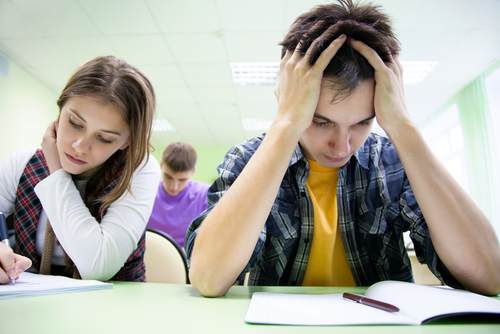In some cases, students struggle to get out of their own way to achieve academic goals.
Poor study habits, lack of enthusiasm and poor preparation negatively impact student performance. However, students also face more indirect conflicts with high academic achievement from areas like finances and family support.
Finances
Assuming a student is able to pay for or finance a college education, financial problems can still obstruct success. Some students don’t buy textbooks and other class resources because of the costs. They may invest thousands in tuition and room and board yet choose to save hundreds of dollars by not buying books, which are important to success in classes. Students may also work too many hours at a job to keep pace with coursework. Limited finances can affect a student’s ability to budget for gas or car repairs, impacting school commutes. Applying for any scholarships available in your local community or through the school can help. Some graduated seniors also work in the summer to save money. Completing financial aid requests early can offer insight to help in financial planning.
Lack of Support
Some students go to college because of parental pressure or influence. However, others may go to school of their own choice and have little to no financial or emotional support from parents and other family members. This is especially true for first-generation students whose parents didn’t go to college themselves. Friendships with people who don’t support your college education or who try to lure you to parties and social activities in lieu of school can get in the way as well. Getting to know faculty and using the school’s academic support center can help. By getting involved in program-specific clubs and campus leadership programs, such as student government, some students also develop more positive relationships.
Poor Study Habits
Even with financial means and family support, students may struggle with personal motivation and poor study habits. New college students may not have developed decent study and work habits during high school. To succeed in college classes, you normally have to schedule regular reading, study and work time. Poor test-taking and a lack of confidence on tests are also common issues. Students often have access to school academic support services and instructor help, but they need self-motivation to take advantage of these resources.
Poor Preparation
Along with poor study habits, students who struggle generally don’t show up to class consistently. Even when they do attend, they aren’t always ready to learn and perform. Along with an attitude to learn and effective listening skills, prepared students have read material before class, ask questions, take organized notes and participate in class and small-group discussions. Disconnection in classes leads to students being out of the loop, missing important instructions and failing to learn content.

